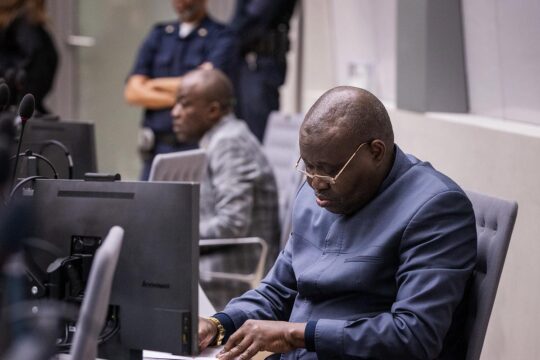A country “gripped with fear” is how the United Nations high commissioner for human rights, Zeid Ra’ad Al Hussein, described the Central African Republic during a September 4 visit. His words echo what I’ve heard from hundreds of victims and witnesses over the past year. Their plea is often the same: “Tell the UN to send more troops, we need help.”
This week marks one year since a UN peacekeeping mission, known as MINUSCA, took over peacekeeping responsibilities from the African Union (AU). The UN peacekeepers, like the AU ones before them and the French “Sangaris” peacekeepers with whom they work, have done a commendable job to help stem the violence, often deliberately directed at civilians, that has gripped the country since 2013.
But avoiding the worst doesn’t mean the violence is over, that abuses against civilians have ended, or that the country is stable. While violence in western parts of the country has waned, it has increased in central and eastern areas. Both the Muslim Seleka and the predominately Christian anti-balaka are targeting civilians in tit-for-tat revenge killings. Nearly a million remain displaced, afraid to return home. Yet in recent months, the only headlines coming out of the Central African Republic have been about sexual abuse by international peacekeepers. Stopping the sexual violence and abuse and holding those responsible to account is vital. But that is only one aspect of the abuses that people in the Central African Republic endure. Armed groups torment civilians every day. Ending the abuses against civilians requires continued international engagement, which seems in short supply.
I have seen MINUSCA peacekeepers protecting civilians by putting themselves between Seleka fighters and anti-balaka militia. I have also been frustrated when the peacekeepers didn’t intervene or were slow to protect civilians. But this peacekeeping mission, imperfect as it is, remains the best chance to end the abuses and bring peace and stability to the country.
On October 1, the UN will host a high-level meeting on the Central African Republic at the UN General Assembly to gather international commitments. Donors need to step up. Deploying a peacekeeping mission was only the first step. The only way to assuage the country’s fear is to end the violence against civilians, hold credible and safe elections, and bring those responsible for the grave violations of international humanitarian and human rights law to justice. There needs to be financial and technical support for the Special Criminal Court that the interim government established and to ensure that all eligible voters can vote in upcoming elections, including those in northern and eastern regions, and refugees in neighboring countries.





